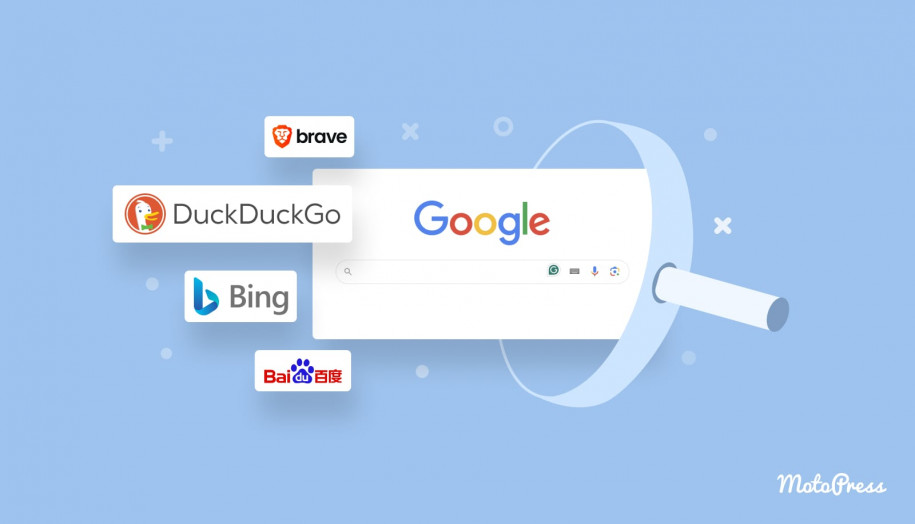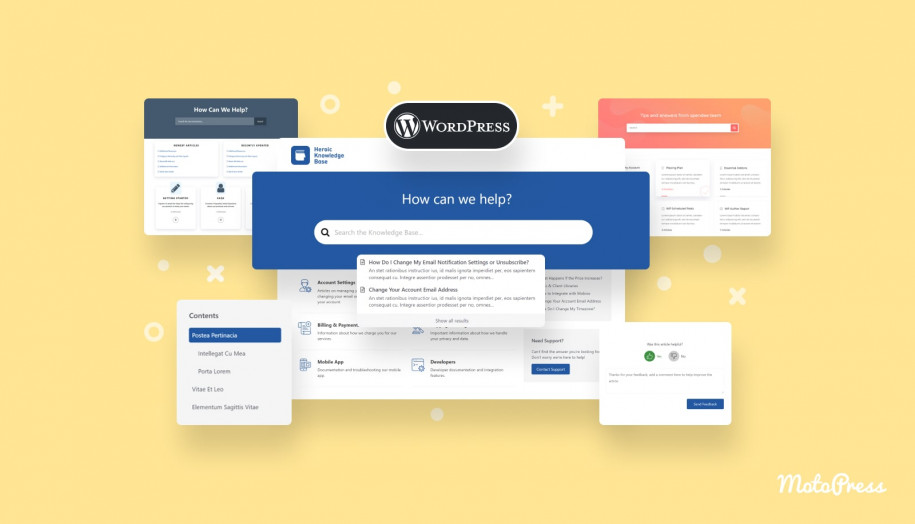What Are Top Search Engines?
Table of Contents
Are you looking for the best online search tool to ensure accurate results? With constant technology development, top search engines keep evolving and introducing new features. From improved search privacy to locally oriented results and AI-assisted search, even the lesser-known search engines have something to surprise you with. In today’s post, we’ve prepared a search engines list known both locally and internationally. This collection of online search tools will be especially useful for marketers looking for new ways of SEO or just regular internet users trying to discover something new.
However, before we continue, let’s look at the table below to find out what are the top 5 search engines you may want to use right away.
| Name | Launched in | Languages |
|---|---|---|
| 1998 | Multiple | |
| Microsoft Bing | 2009 | Multiple |
| DuckDuckGo | 2008 | Multiple |
| Baidu | 2000 | Chinese |
| Naver | 1999 | Korean |
Top 10 Search Engines
The largest search engines have been around almost since the inception of the Internet. Providing information to users from all over the world, these tools crawl and index websites to deliver them later as a part of SERP (search engine result page). By using the built-in algorithms, leading search engines rank websites (from business resources to direct booking ones) and display them depending on their relevance to the user’s query. These 10 platforms are some of the most popular, trending, and innovative tools you are actively using or may want to use in the future.
 Google is an undoubted leader in online search which is a preferable choice for users from the US and major European countries. Besides, it is a #1 choice for online marketers globally. Regular changes and updates to Google’s ranking algorithm shape the SEO strategies of many online businesses, blogs, and traffic-filled websites worldwide. With its market share of over 92% as of July 2024 and many tools for users and experts ranging from Gemini AI to Google Search Console, this one of the top search engines dominates modern online search.
Google is an undoubted leader in online search which is a preferable choice for users from the US and major European countries. Besides, it is a #1 choice for online marketers globally. Regular changes and updates to Google’s ranking algorithm shape the SEO strategies of many online businesses, blogs, and traffic-filled websites worldwide. With its market share of over 92% as of July 2024 and many tools for users and experts ranging from Gemini AI to Google Search Console, this one of the top search engines dominates modern online search.
Notable features:
- Easy search customization;
- Featured snippets for most useful results;
- Tools for reliable content search (Images, Maps, Reviews, etc);
- Real-time calculations & word definitions;
- Relevant FAQ and knowledge sections for popular search queries.
| Name | Owned by | Launched in |
|---|---|---|
| Alphabet Inc. | 1998 |
Microsoft Bing
 It goes without saying that Google is the leader in the online search market. Still, other leading search engines provide accurate search results and sometimes even have features that Google lacks.
It goes without saying that Google is the leader in the online search market. Still, other leading search engines provide accurate search results and sometimes even have features that Google lacks.
Microsoft Bing, for example, is one of the popular search engines developed by Microsoft and is nowadays known as one of the main search engine options for users of Windows 10 & 11 and other Microsoft products including the Edge browser. With a SERP layout similar to Google’s, Bing focuses on search snippets & FAQs similar to Google, often putting them above organic search results.
Moreover, this search engine motivates its users with the Microsoft Rewards program, awarding points for daily searches. With almost 4% of the market share, Bing is certainly one of the most successful search engines, being surpassed only by Google.
Notable features:
- Copilot AI integration for more content-rich search;
- Real-time computations;
- Image match for high-resolution image search;
- User-friendly UI.
| Name | Owned by | Launched in |
|---|---|---|
| Microsoft Bing | Microsoft | 2009 |
Yahoo!
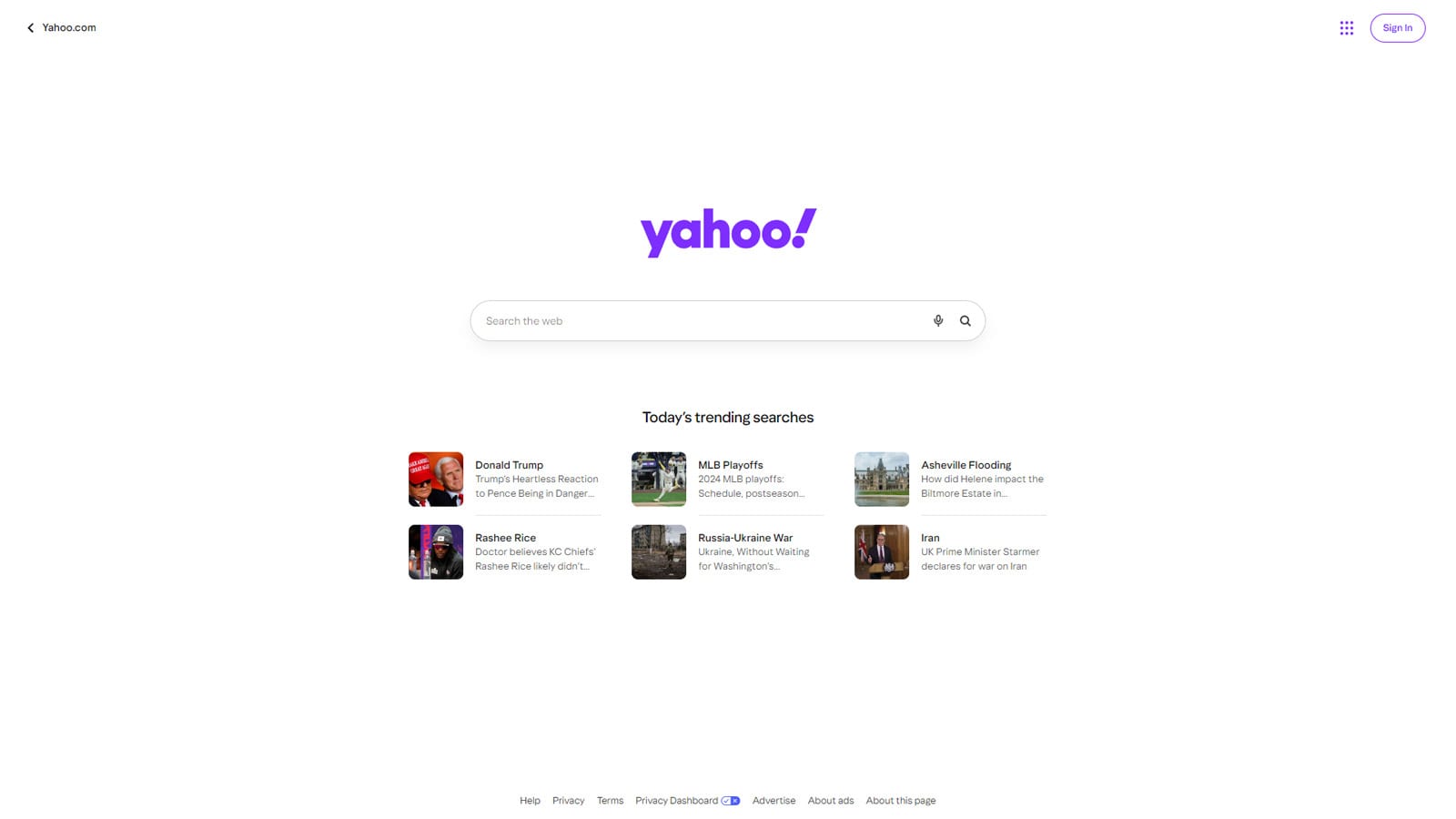 One of the oldest top search engines, Yahoo, provides a minimalist interface with its design being similar to Google SERPs.
One of the oldest top search engines, Yahoo, provides a minimalist interface with its design being similar to Google SERPs.
Using the Microsoft Bing search engine technology, Yahoo provides relevant search results in a multitude of categories, from images to shopping and videos. Similar to the #1 search provider, Yahoo provides additional services, such as Mail & Weather. According to the StatCounter search engine ranking company, Yahoo has 1.24% of the global market share, which makes it the second most popular alternative to Google Search.
Notable features:
- Relevant search results priority;
- Intuitive interface;
- Quick search result delivery;
- Personalized search & browsing experience.
| Name | Owned by | Launched in |
|---|---|---|
| Yahoo! | Yahoo! Inc. | 1994 |
DuckDuckGo
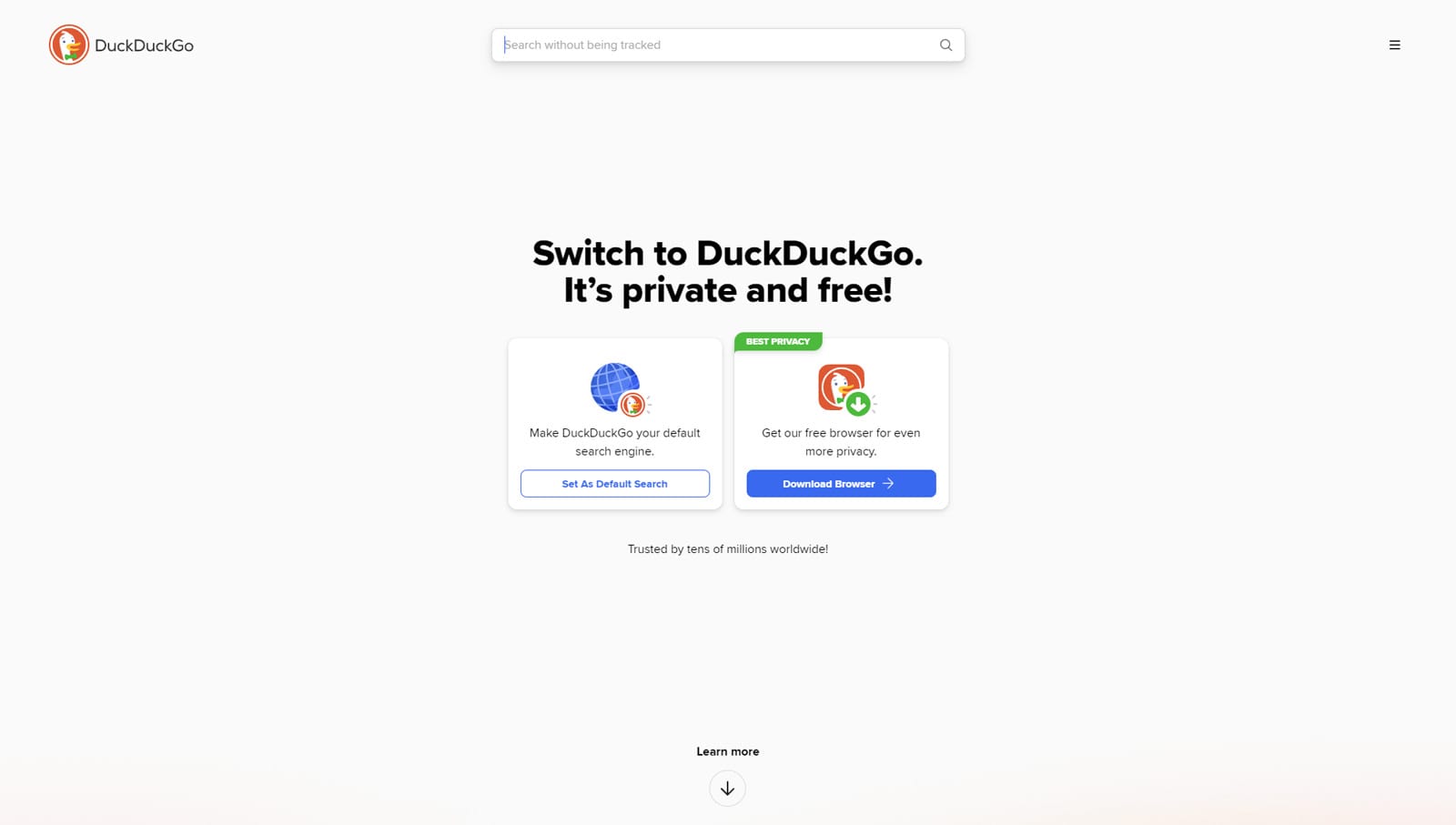 If you are looking for one of the top 10 search engines that value your privacy, DuckDuckGo is a preferable option. With its easy-to-navigate user interface, this search engine with 0.72% of the market share slowly grows in popularity, partly due to its privacy-oriented search. Moreover, some Linux distributions often add DuckDuckGo as a default search engine. Aside from not tracking your search queries, it provides some interesting features that enhance the experience of its users.
If you are looking for one of the top 10 search engines that value your privacy, DuckDuckGo is a preferable option. With its easy-to-navigate user interface, this search engine with 0.72% of the market share slowly grows in popularity, partly due to its privacy-oriented search. Moreover, some Linux distributions often add DuckDuckGo as a default search engine. Aside from not tracking your search queries, it provides some interesting features that enhance the experience of its users.
Notable features:
- Anonymity focus;
- Instant search results;
- Bangs (direct search on specific websites);
- Email protection.
| Name | Owned by | Launched in |
|---|---|---|
| DuckDuckGo | Duck Duck Go, Inc. | 2008 |
Brave Search
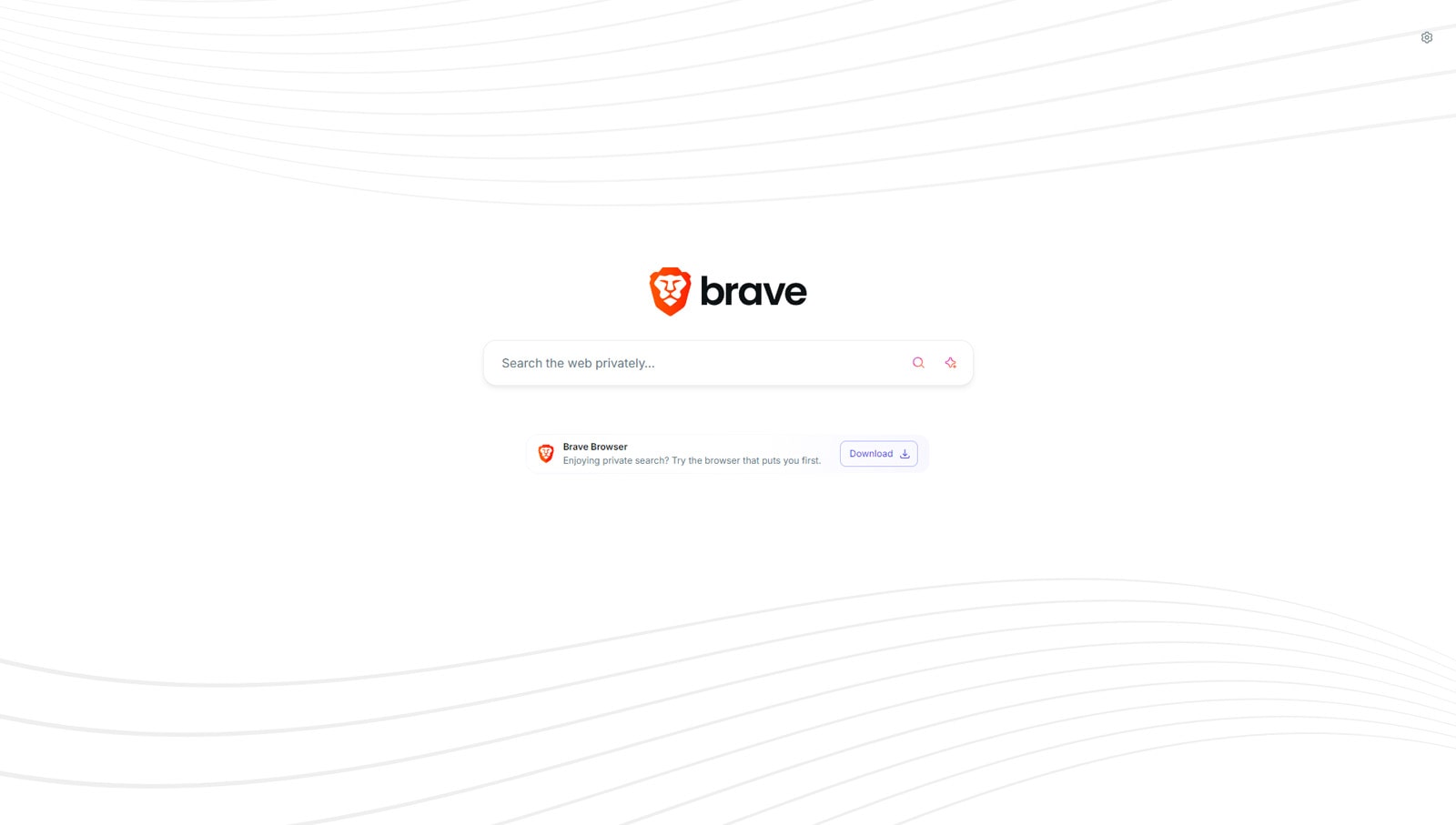 Next on our list of search engines is Brave Search. Often associated with a browser of a similar name, this search system also puts your privacy first, just like the previously mentioned DuckDuckGo. Unlike the most popular solutions, Brave delivers the essentials when it comes to online search. For example, it provides just the regular search results with three available categories: images, videos, and news. However, the main search result page also features other categories, such as Discussions. It even allows you to perform a search in other top search engines.
Next on our list of search engines is Brave Search. Often associated with a browser of a similar name, this search system also puts your privacy first, just like the previously mentioned DuckDuckGo. Unlike the most popular solutions, Brave delivers the essentials when it comes to online search. For example, it provides just the regular search results with three available categories: images, videos, and news. However, the main search result page also features other categories, such as Discussions. It even allows you to perform a search in other top search engines.
Notable features:
- Independent search index;
- Privacy-oriented search;
- Transparent & open-source algorithm;
- Supports AI-generated query responses.
| Name | Owned by | Launched in |
|---|---|---|
| Brave | Brave Software, Inc. | 2021 |
Baidu
 From privacy-first & largest search engines let’s move to those known locally. For example, Baidu is one of the most popular search engines in China with over 76% of the local market share and less than 1% globally. It looks similar to Google and provides not just search functionality but also a dozen other services. From cloud storage to maps and AI, there is a variety of benefits to check out aside from search. As for the latter, this one of the top search engines delivers everything you’d expect from a nationwide search giant – voice & web search, SERPs with images and videos, auto-complete feature, etc. Note that the online search and all extra solutions are only available in Chinese.
From privacy-first & largest search engines let’s move to those known locally. For example, Baidu is one of the most popular search engines in China with over 76% of the local market share and less than 1% globally. It looks similar to Google and provides not just search functionality but also a dozen other services. From cloud storage to maps and AI, there is a variety of benefits to check out aside from search. As for the latter, this one of the top search engines delivers everything you’d expect from a nationwide search giant – voice & web search, SERPs with images and videos, auto-complete feature, etc. Note that the online search and all extra solutions are only available in Chinese.
Notable features:
- Personalized search results;
- Search filters;
- Local search and maps support;
- Integration with Baidu Baike, an online encyclopedia.
| Name | Owned by | Launched in |
|---|---|---|
| Baidu | Baidu, Inc. | 2000 |
Naver
 Naver is on our list of search engines as the biggest solution for online search in South Korea. Similar to other online search platforms mentioned in the article, it provides relevant search results for local user queries. Ranging from image to blog search, the search engine provides results in diverse categories allowing you to easily filter them and find what’s necessary. Also, this search engine provides results in Korean and only indexes the local websites to provide relevant results.
Naver is on our list of search engines as the biggest solution for online search in South Korea. Similar to other online search platforms mentioned in the article, it provides relevant search results for local user queries. Ranging from image to blog search, the search engine provides results in diverse categories allowing you to easily filter them and find what’s necessary. Also, this search engine provides results in Korean and only indexes the local websites to provide relevant results.
Notable features:
- Multiple search result categories;
- Online community search;
- Real-time search trends;
- Integrated translation tools;
- Sponsored results.
| Name | Owned by | Launched in |
|---|---|---|
| Naver | Naver Corporation | 1999 |
Ecosia
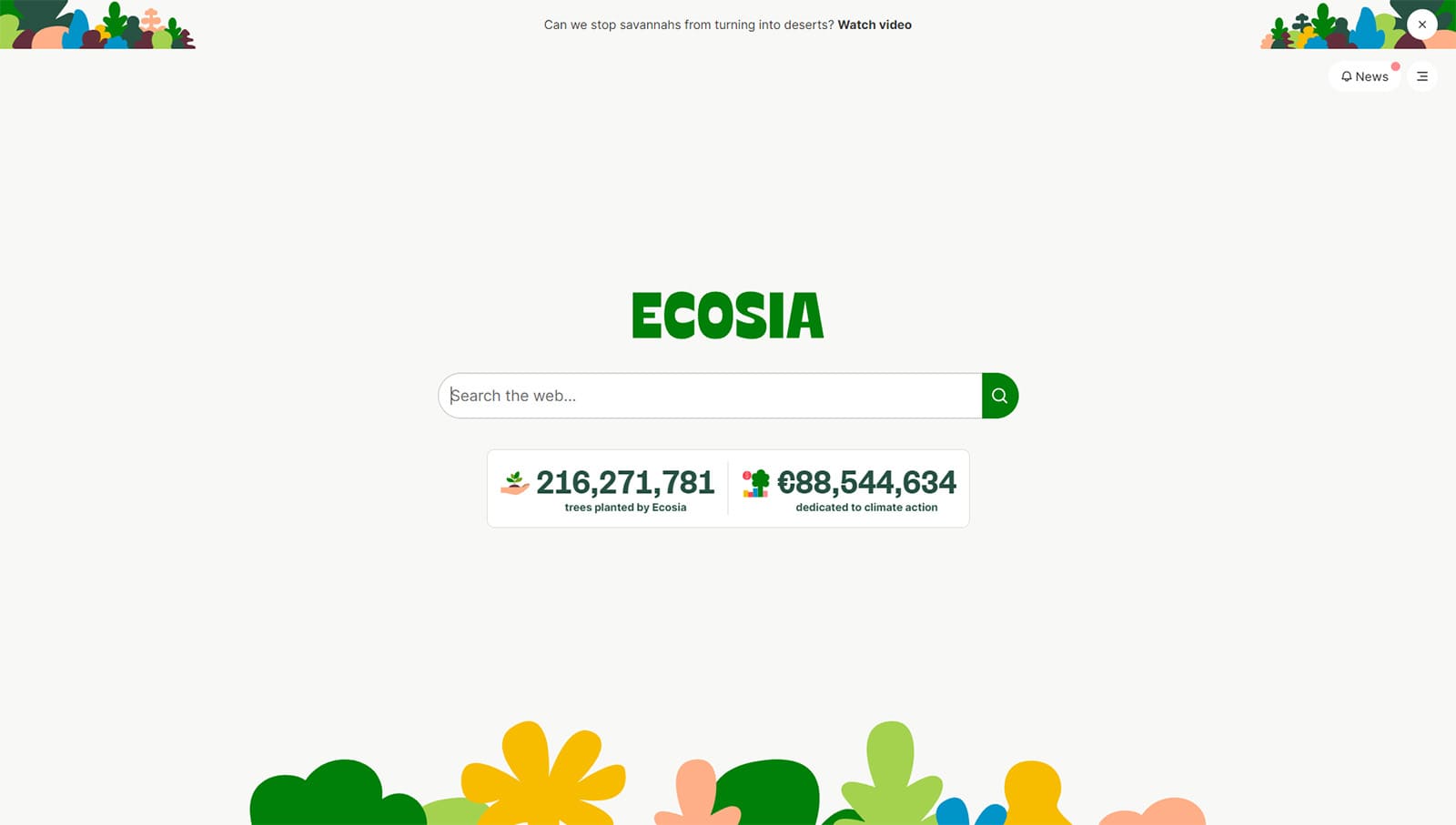 Ecosia is one of the top search engines that not only provides relevant results but is also oriented towards tree-planting initiatives. Established in 2009 in Germany, this solution delivers powerful search functionality thanks to the partnership with Bing & Google. Similar to some modern search engines, Ecosia values your privacy and avoids selling its users’ data to advertisers. By using this search engine millions of people worldwide make their contribution to tree planting worldwide.
Ecosia is one of the top search engines that not only provides relevant results but is also oriented towards tree-planting initiatives. Established in 2009 in Germany, this solution delivers powerful search functionality thanks to the partnership with Bing & Google. Similar to some modern search engines, Ecosia values your privacy and avoids selling its users’ data to advertisers. By using this search engine millions of people worldwide make their contribution to tree planting worldwide.
Notable features:
- 4+ categories of search results;
- Privacy protection;
- Integrated AI assistant;
- Support of region-based search results.
| Name | Owned by | Launched in |
|---|---|---|
| Ecosia | Ecosia GmbH | 2009 |
Ask.com
 Next on our search engines list is Ask.com, which was founded in 1996 as a question-and-answer platform. Today it provides general web search functionality with a clean UI and simple SERP design. Just like many popular search engines, it includes sponsored search results on top of the page. However, it provides content in multiple categories on its home page. This makes Ask.com a more varied resource and allows its users to discover news, and results from social media, and popular publications.
Next on our search engines list is Ask.com, which was founded in 1996 as a question-and-answer platform. Today it provides general web search functionality with a clean UI and simple SERP design. Just like many popular search engines, it includes sponsored search results on top of the page. However, it provides content in multiple categories on its home page. This makes Ask.com a more varied resource and allows its users to discover news, and results from social media, and popular publications.
Notable features:
- Regular and Q&A search;
- Search suggestions;
- Paid search listings;
- Customizable search preferences.
| Name | Owned by | Launched in |
|---|---|---|
| Ask.com | IAC | 1996 |
Yep
 Launched in 2022 by Ahrefs, a popular SEO platform, Yep is one of the less popular search engines yet worth your attention. It applies an interesting business model aimed at content creators sharing up to 90% of ad revenue with them. Additionally, this platform provides an alternative to top search engines by using independent algorithms and enhancing user privacy. Yep is a user-friendly online search tool offering better privacy than most mainstream search engines.
Launched in 2022 by Ahrefs, a popular SEO platform, Yep is one of the less popular search engines yet worth your attention. It applies an interesting business model aimed at content creators sharing up to 90% of ad revenue with them. Additionally, this platform provides an alternative to top search engines by using independent algorithms and enhancing user privacy. Yep is a user-friendly online search tool offering better privacy than most mainstream search engines.
Notable features:
- Minimalist design;
- No activity tracking;
- Search experience personalization;
- Cross-platform support.
| Name | Owned by | Launched in |
|---|---|---|
| Yep | Ahrefs | 2022 |
Conclusion
We hope this overview of the top search engines has helped you find the right tool for marketing your content and finding information online. Whether you’re using Google, Bing, or something more niche, a search engine is an integral part of your daily Internet activity. With a varied functionality range provided by the abovementioned tools, it is important to remember the key features that every search engine needs to have:
- Search accuracy: One of the main features that the top 10 search engines need to provide is accuracy when it comes to online search. The better & more relevant search results are, the higher the chance that search engine users will be satisfied with their experience using it.
- Privacy: A no-tracking policy is a growing trend that shows how important privacy is to many search engine users. No wonder that many online search solutions are committed to not sharing your data or usage history when you perform another search.
- Regional content: Many leading search engines listed in this article provide regional content due to its increased relevance for many users. This is especially true for locally successful search systems, such as Baidu, Naver, or Yandex.
- AI integration: One of the latest trends even for the largest search engines is AI. From Google to Brave, a wide range of online search tools provides generative AI-assisted results to ensure relevant SERPs and varied ones.
